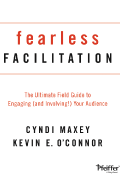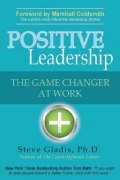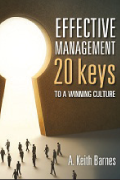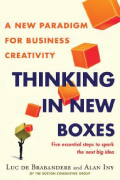TD Magazine Article
Facilitating From the Sidelines
A review of Fearless Facilitation: The Ultimate Field Guide to Engaging (and Involving!) Your Audience by Cyndi Maxey and Kevin E. O’Connor
Thu Aug 08 2013

Fearless Facilitation: The Ultimate Field Guide to Engaging (and Involving!) Your Audience
By Cyndi Maxey and Kevin E. O'Connor
(Pfeiffer, 208 pp., $35)
"They're giving away all our best secrets!" was our immediate reaction to reading Fearless Facilitation. What took us nearly 20 years of training, practice, trial and error, and even more practice to master is explained quite well in this easy-to-read book.
The authors are certified professional speakers, and draw from their unique backgrounds to explain the importance of presence, mindset, and improvisation in facilitation.
Fearless facilitation takes courage, risk taking, openness, trust, respect, full attention and engagement, and ignoring one's ego. Although structure and preparation—which the authors touch upon—are necessary for successful facilitation, the interactive skills of guiding and encouraging the audience are brought to the forefront in Fearless Facilitation.
For those who use PowerPoint slides to remember their scripts, Maxey and O'Connor insist on an alternative audience-focused approach. Their strategy involves getting to interactivity immediately and recognizing that the audience is most important—not the facilitator. The facilitator should become almost invisible, like a Montessori teacher, guiding the interactions of others.
Because participants are the "value interpreters," the facilitator should adapt to them in a dynamic fashion rather than the other way around, Maxey and O'Connor explain. By sensing the group's energy and predicting challenges, the facilitator can improvise as needed to address the needs of the group.
That is a far more "organic" and flexible approach in which the participants drive much of the action and yet, paradoxically, the facilitator remains firmly in control.
Maxey and O'Connor focus on the "art"—as opposed to the "science"—of facilitation. There is some discussion of technique, which is presented in lighthearted, engaging stories and examples from the authors' personal experiences.
The book also provides tips and sample icebreaker questions to kick off interactions between learners. For example, the "Larry King interview" is an excellent technique the authors describe; we used it right away to great success. Unlike other interview formats, it includes a debriefing during which participants are asked to share what they heard, noticed, liked, learned, or appreciated.
Although this book may not cover everything a new facilitator needs to know, it does provide a fresh approach to facilitation that harnesses the power of group learning, as well as ample inspiration to get started. Paired with a facilitation techniques resource, Fearless Facilitation would be an essential part of any facilitator's tool kit.
Positive Leadership: The Game Changer at Work

By Steve Gladis
(Steve Gladis Leadership Partners, 160 pp., $14.95)
Self-published by Gladis, a distinguished leadership expert, Positive Leadership contains research-based principles to help you become a more effective leader. The book is divided into two parts. The first presents key findings from positive psychology research and is organized into principles that you can apply to your own role. The second part is a parable about a former business executive who attempts to return to normalcy after suffering a personal tragedy. The story brings the research from the first part of the book to life by illustrating how it is applied in actual business and personal scenarios. The game plan presented in Positive Leadership will change readers' outlooks on and approach to leadership, drastically boosting results.
Effective Management: 20 Keys to a Winning Culture

By A. Keith Barnes
(ASTD Press, 128 pp., $19.95)
Within any organization, there are vital people who shape its culture. Effective Management offers tips for becoming an instrument of change in your organization, no matter your role. The 20 keys in this book will help managers and employees alike to support teams of people who step up to the plate, solve problems before they happen, and take advantage of opportunities. Barnes gets to the root of the problem by explaining issues such as meeting do's and don'ts, underperformance, how to feature benefits, and much more. The author also shows readers why changing their culture is so important and how to do it.
Thinking in New Boxes: A New Paradigm for Business Creativity

By Luc de Brabandere and Alan Iny
(Random House, 318 pp., $28)
The phrase "think outside of the box" is cliché and unsettling at the same time. We all know creativity and innovation are lifelines for businesses, but how do we begin to innovate? According to Thinking in New Boxes, we can start by thinking, not without limits, but in new boxes. The authors argue that we need mental frameworks to organize our thinking. They present a five-step process to help readers shake off cognitive biases and preconceptions, and work systematically toward innovative solutions and ideas. This book will help you and your organization achieve sustainable creativity, so that you innovate, evaluate, and reevaluate to stay on top.
What's on Jay Conger's Bookshelf?
American Icon: Alan Mulally and the Fight to Save Ford Motor Company by Bryce G. Hoffman. This is the inside story of the turnaround of Ford Motor Company. Under the leadership of CEO Alan Mulally, Ford unified its divided global operations; transformed its lackluster product lineup; and overcame a dysfunctional culture. As the rest of Detroit collapsed, Ford went from the brink of bankruptcy to being the most profitable automaker in the world.
Brain Rules: 12 Principles for Surviving and Thriving at Work, Home, and School by John Medina. The author, a molecular biologist, shares his lifelong interest in how the brain sciences might influence the way we teach children and the way we work. In each chapter, he describes a brain rule—what scientists know for sure about how our brains work—and then offers transformative ideas for our daily lives.
Moonwalking with Einstein: The Art and Science of Remembering Everything by Joshua Foer. This book recounts Foer's yearlong quest to improve his memory under the tutelage of top "mental athletes." He draws on cutting-edge research, a surprising cultural history of remembering, and venerable tricks of the mentalist's trade.
